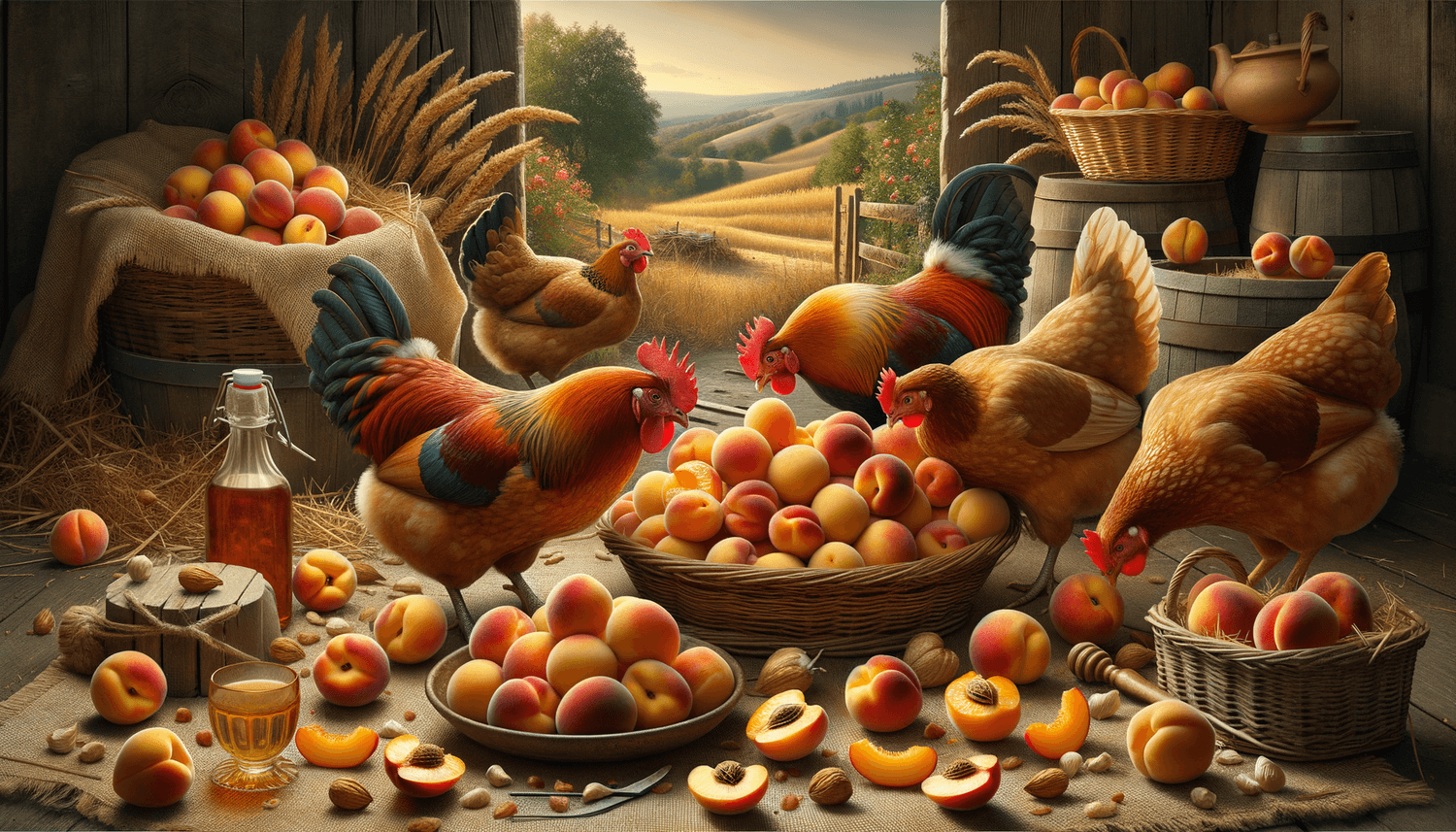Welcome to another clucky edition of our fun and feathery backyard chicken blog! Today, we’re scratching the surface on a juicy question swirling in the minds of chicken keepers everywhere: Can chickens eat nectarines? We know that the key to happy, healthy hens is a balanced diet, so let’s peck our way through the benefits and risks, nutritional value, and even discuss how to prepare this delectable stone fruit for our feathery friends. Soon, you’ll be an expert in knowing whether your chickens can enjoy a sumptuous summer treat or if it’s best to keep those nectarines to yourself!
Can chickens eat nectarines?
Yes, chickens can safely eat nectarines. Nectarines are not only a delicious treat, but they also provide essential vitamins, minerals, and antioxidants for your flock. However, moderation is essential, as feeding your chickens too many nectarines can lead to an unbalanced diet and health issues.
A balanced diet for chickens
Just like humans, chickens need a balanced diet to maintain optimal health and productive egg-laying abilities. The primary source of nutrition for chickens should come from high-quality chicken feed, which is specifically formulated to provide all the essential nutrients they require. Ensuring that chicken feed makes up approximately 80-90% of their diet will help guarantee that your feathery friends are well-nourished and healthy.
The remaining 10-20% of a chicken’s diet can be comprised of tasty treats such as fruits and vegetables. While these additions bring variety and excitement, it’s crucial to remember that they should not replace the primary chicken feed. Introducing fruits and vegetables as occasional treats will not only create enjoyment for your chickens, but it also provides additional vitamins, minerals, and other beneficial nutrients to support their overall well-being and happiness.
Nutritional value of nectarines for chickens.
Feeding nectarines to chickens offers various nutritional benefits, making them a healthy addition to your flock’s treat rotation. Nectarines are rich in vitamins A and C, which play essential roles in maintaining a strong immune system and promoting healthy skin, feathers, and eyes. Vitamin A also aids in the development of strong bones and supports reproductive health. Vitamin C, on the other hand, is an antioxidant that helps the body to fight off infections and maintain cellular health.
Apart from vitamins, nectarines are a good source of minerals such as potassium, which assists in regulating fluid balance, nerve function, and muscle contractions. Chickens may also benefit from the dietary fiber present in nectarines, as it aids in healthy digestion and can help prevent gastrointestinal issues. Furthermore, nectarines have a high water content, which provides a natural source of hydration. This is particularly beneficial during hot summer days when chickens are more susceptible to heat stress and dehydration.
Lastly, nectarines are low in calories and sugar compared to some other fruits, which is an added advantage when considering a treat for your chickens. However, it is essential to ensure that nectarines are fed in moderation and not used as a replacement for a well-balanced diet, as excessive consumption may lead to health problems due to an imbalanced diet.
Nutrition table of nectarines for chickens.
| Information | Description |
|---|---|
| Nutritional Value | Rich in vitamins A and C, potassium, and dietary fiber |
| Suggested Serving Size | One medium-sized nectarine per two chickens, occasionally |
| Safe Feeding Practices | Offer nectarines in moderation, as part of a balanced diet |
| Preparation | Wash, remove pit, and chop into small pieces |
| Potential Risks | Excessive consumption can lead to an unbalanced diet and health issues |
| Hydration | High water content provides a natural source of hydration |
| Digestion | Dietary fiber helps support healthy digestion |
| Seasonal Availability | Typically available during the summer months |
| Other Benefits | Low in calories and sugar compared to some other fruits |
Caution with fruit pits and pesticides
While nectarines can be a healthy treat for chickens, it’s important to take precautions when feeding them. Before offering nectarines to your flock, make sure to remove the pit, as it can pose a choking hazard and contains a small amount of cyanide, which is toxic. Ingesting the pit can lead to serious health complications or even death.
In addition, it is crucial to rinse the nectarines thoroughly to help remove any residues of pesticides that may be harmful to your chickens. Pesticides, depending on the type and amount, can have a negative impact on your chickens’ health, reducing their egg production and potentially causing chronic health issues.
Possible alternatives to nectarines
While nectarines make for a nutritious treat, there are plenty of other fruits and vegetables that can also be fed to chickens. Apples, watermelon, grapes, and strawberries are just a few examples of fruits that are safe for chickens and may offer similar nutritional benefits. Leafy greens like lettuce, spinach, and kale, as well as vegetables such as carrots, broccoli, and pumpkins, are also excellent options for healthy and delicious treats.
Storing and freezing nectarines for later
If you find yourself with an abundance of nectarines, you can store them in a dry, cool place for a few days, or in the refrigerator for up to two weeks. To extend their shelf life even more, consider freezing them. First, remove the pit and clean the nectarines. Then, chop them into small pieces suitable for feeding to your chickens, and place them in an airtight container or heavy-duty freezer bag. Frozen nectarines can be stored for several months and make for a refreshing treat for your chickens during the offseason.
With these tips and precautions in mind, you can confidently treat your chickens to nectarines while ensuring they enjoy the nutritional benefits of this summer delight.

















